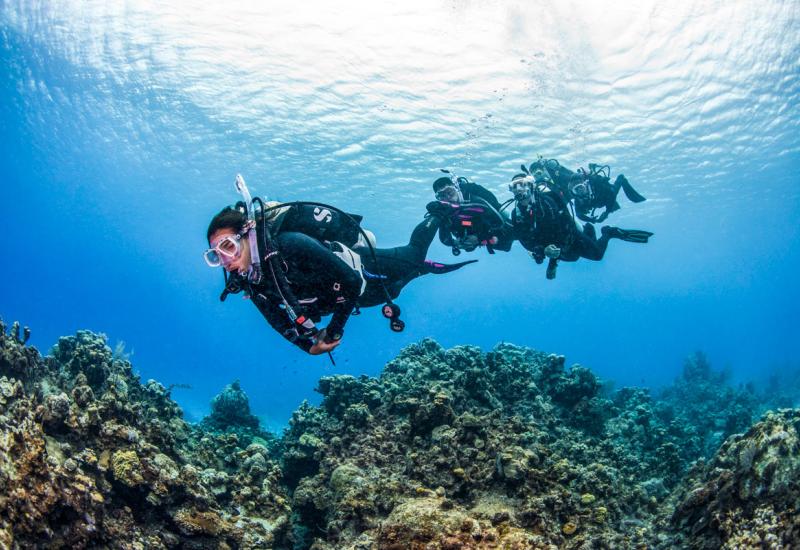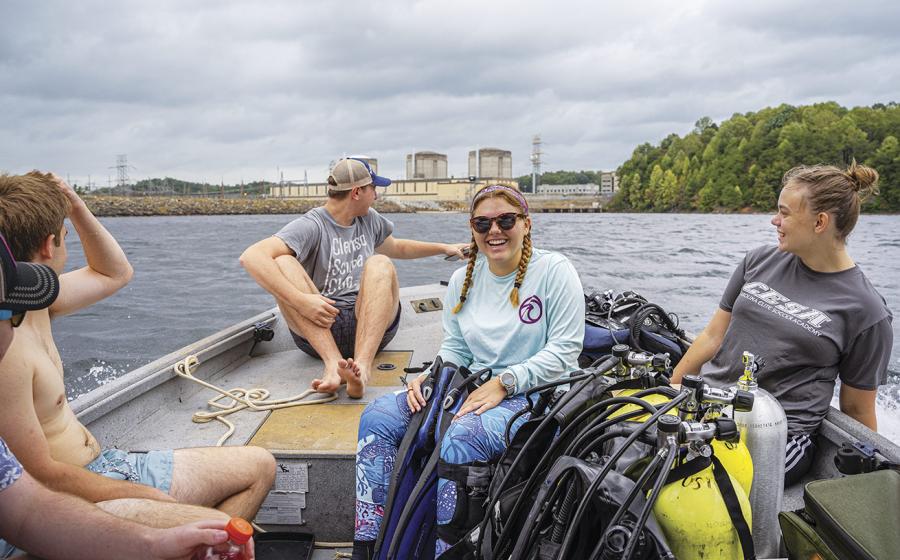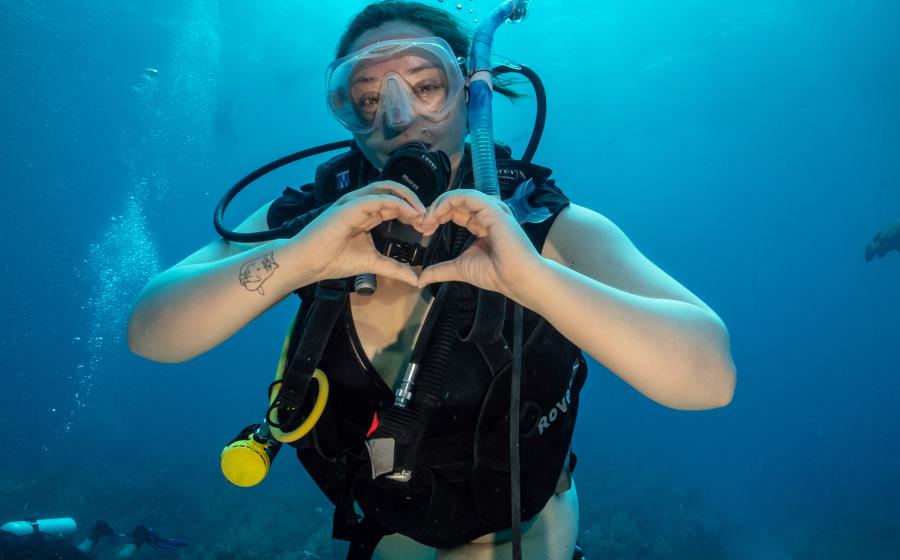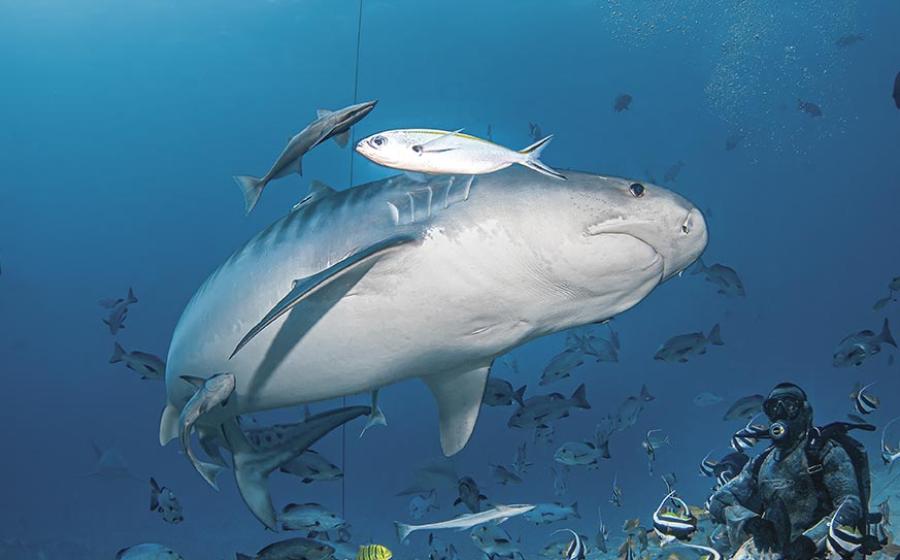Bahamas passes new law for shark conservation

Bahamas passes new law protecting sharks
istockphoto
Sharks in the Bahamas can breathe more easily after the nation's government announced today that all commercial shark fishing in the approximately 243,244 square miles of the country's waters is now prohibited. Such shark conservation laws are becoming more and more common across the world.
"2011 is fast becoming the year of the shark," said Jill Hepp, manager of global shark conservation for the Pew Environment Group. "Today's announcement permanently protects more than 40 shark species in Bahamian waters. We applaud the people and government of The Bahamas for being bold leaders in marine conservation."
The island nation joins Palau, the Maldives and Honduras in prohibiting the commercial fishing of sharks. Together, this adds up to almost 2.4 million 926,645 square miles of ocean, where these animals can now swim safely. The Bahamian sanctuary was created by adding an amendment to the Fisheries Resources Act to prohibit commercial shark fishing, along with the sale, importation and export of shark products.
"The Bahamas' prohibition on longline fishing gear 20 years ago protected the marine resources of The Bahamas and ensured that our shark populations would remain healthy," said Eric Carey, executive director of The Bahamas National Trust (BNT). "But there were no specific shark conservation laws in The Bahamas, the crown jewels of ocean health. The new regulations signed this morning by Minister Cartwright, ensure that that sharks can continue to thrive for generations in our waters, one of the world's best places to see sharks."
The country's shark conservation effort is the result of a partnership between the Pew Environment Group and BNT, which began just as a major Bahamian seafood company announced its intention to catch sharks and export their fins. Globally, commercial fisheries kill up to 73 million sharks annually (threatening the future existence of many species), mainly for their fins. The collaboration between the Pew Environment Group and BNT produced popular public service announcements and a supportive petition signed by more than 5,000 Bahamians. Staff also coordinated outreach trips to support shark protections by Pierre-Yves Cousteau (son of Jacques Cousteau), scientist and artist Guy Harvey, and Sherman's Lagoon cartoonist Jim Toomey.
"We congratulate the Right Honorable Hubert Ingraham, the Bahamian Prime Minister, and Lawrence S. Cartwright, Minister of Agriculture and Marine Resources, for acting to save sharks, the ocean's apex predator," said Hepp.
The Pew Environment Group is the conservation arm of The Pew Charitable Trusts, a nongovernmental organization that works globally to establish pragmatic, science-based policies that protect our oceans, preserve our wildlands and promote clean energy.
The Bahamas National Trust was established by an Act of Parliament in 1959 and is mandated with the conservation of natural and historic resources of The Bahamas. It is the only known non-governmental organization in the world with the mandate to manage a country's entire national park system.
For more information on the Pew Environment Group, visit www.pewenvironment.org
For more information on the Bahamas National Trust, visit www.bnt.bs

istockphoto
Sharks in the Bahamas can breathe more easily after the nation's government announced today that all commercial shark fishing in the approximately 243,244 square miles of the country's waters is now prohibited. Such shark conservation laws are becoming more and more common across the world.
"2011 is fast becoming the year of the shark," said Jill Hepp, manager of global shark conservation for the Pew Environment Group. "Today's announcement permanently protects more than 40 shark species in Bahamian waters. We applaud the people and government of The Bahamas for being bold leaders in marine conservation."
The island nation joins Palau, the Maldives and Honduras in prohibiting the commercial fishing of sharks. Together, this adds up to almost 2.4 million 926,645 square miles of ocean, where these animals can now swim safely. The Bahamian sanctuary was created by adding an amendment to the Fisheries Resources Act to prohibit commercial shark fishing, along with the sale, importation and export of shark products.
"The Bahamas' prohibition on longline fishing gear 20 years ago protected the marine resources of The Bahamas and ensured that our shark populations would remain healthy," said Eric Carey, executive director of The Bahamas National Trust (BNT). "But there were no specific shark conservation laws in The Bahamas, the crown jewels of ocean health. The new regulations signed this morning by Minister Cartwright, ensure that that sharks can continue to thrive for generations in our waters, one of the world's best places to see sharks."
The country's shark conservation effort is the result of a partnership between the Pew Environment Group and BNT, which began just as a major Bahamian seafood company announced its intention to catch sharks and export their fins. Globally, commercial fisheries kill up to 73 million sharks annually (threatening the future existence of many species), mainly for their fins. The collaboration between the Pew Environment Group and BNT produced popular public service announcements and a supportive petition signed by more than 5,000 Bahamians. Staff also coordinated outreach trips to support shark protections by Pierre-Yves Cousteau (son of Jacques Cousteau), scientist and artist Guy Harvey, and Sherman's Lagoon cartoonist Jim Toomey.
"We congratulate the Right Honorable Hubert Ingraham, the Bahamian Prime Minister, and Lawrence S. Cartwright, Minister of Agriculture and Marine Resources, for acting to save sharks, the ocean's apex predator," said Hepp.
The Pew Environment Group is the conservation arm of The Pew Charitable Trusts, a nongovernmental organization that works globally to establish pragmatic, science-based policies that protect our oceans, preserve our wildlands and promote clean energy.
The Bahamas National Trust was established by an Act of Parliament in 1959 and is mandated with the conservation of natural and historic resources of The Bahamas. It is the only known non-governmental organization in the world with the mandate to manage a country's entire national park system.
For more information on the Pew Environment Group, visit www.pewenvironment.org
For more information on the Bahamas National Trust, visit www.bnt.bs









